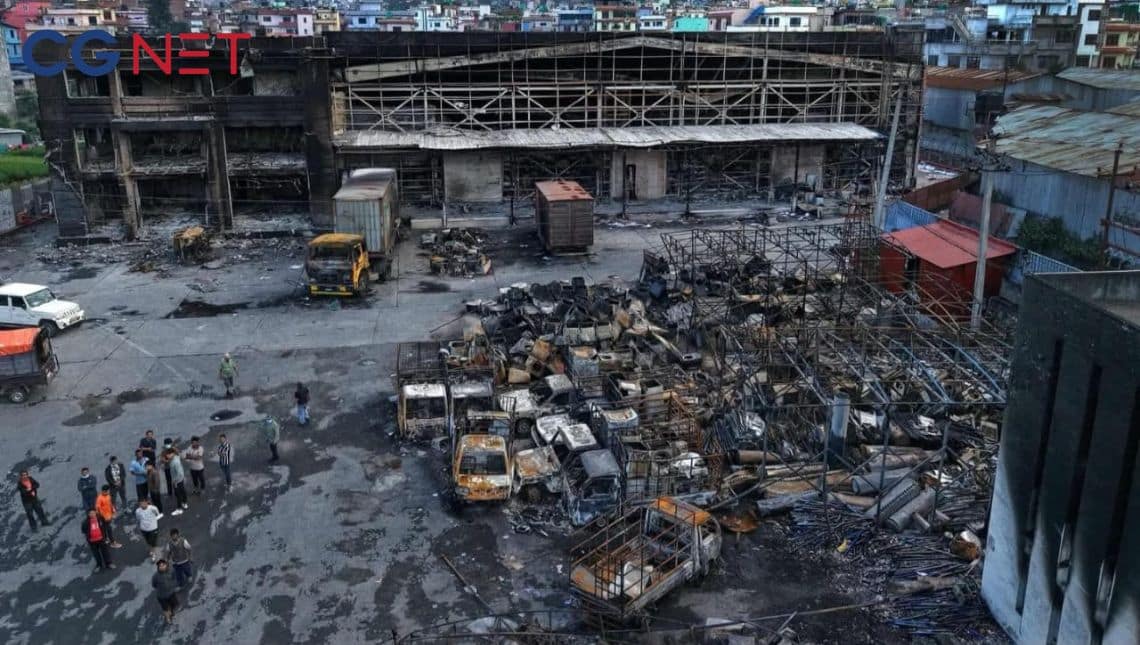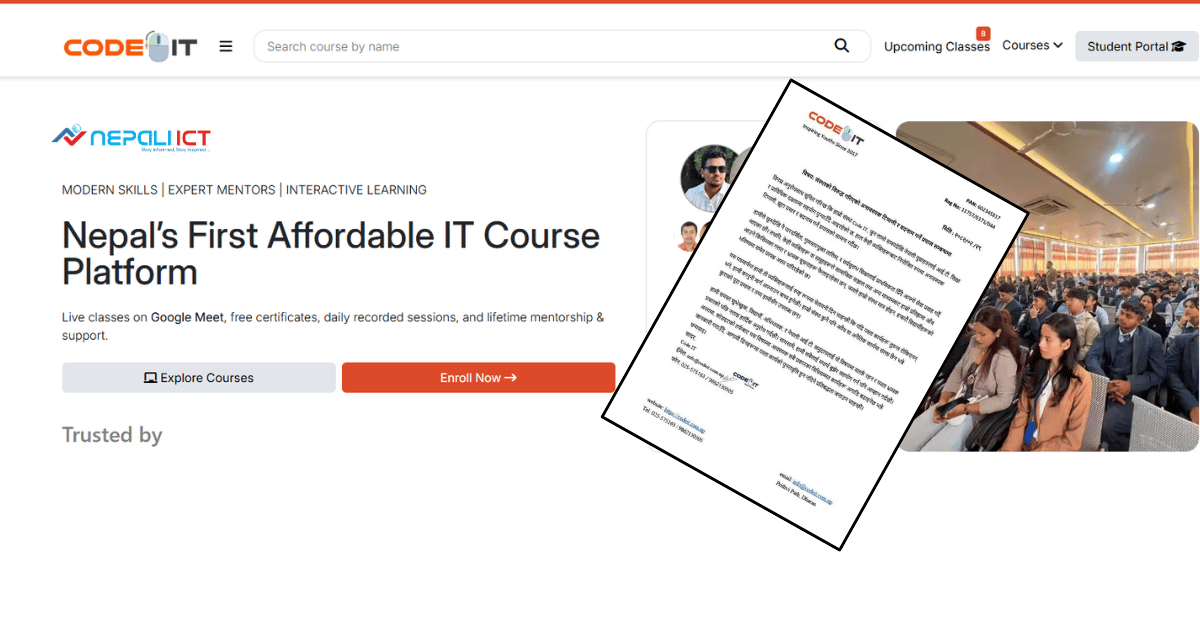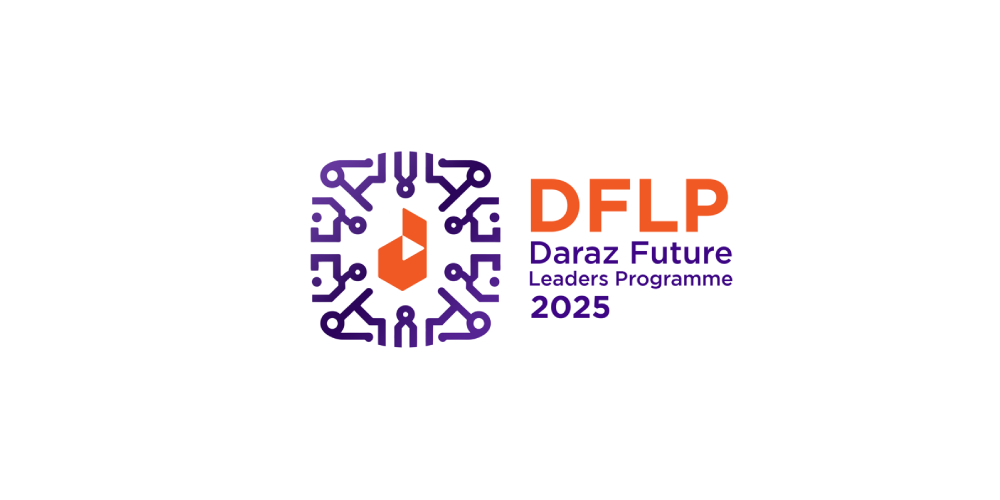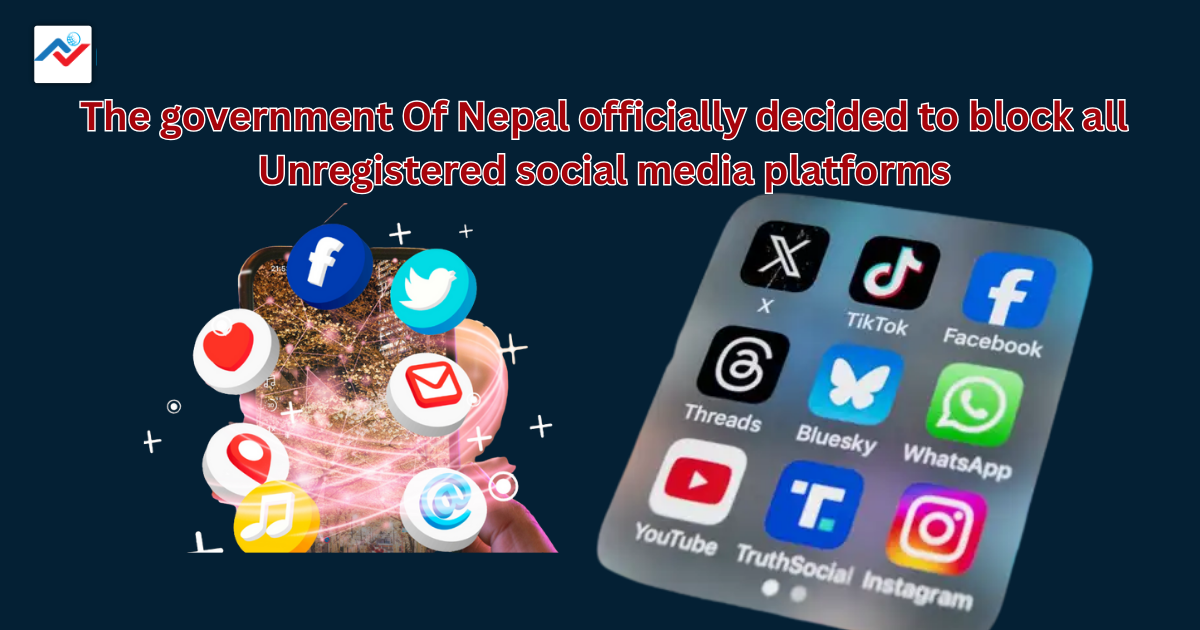Kathmandu-The Nepal social media ban has become reality as the government officially decided to block all social media platforms that failed to register within the specified deadline. This dramatic decision was made during a meeting held on Thursday at the Ministry of Communications and Information Technology, led by Communications Minister Prithvi Subba Gurung.
According to sources who spoke to TechPana, the Nepal social media ban will affect all social media platforms that didn’t even attempt to contact the ministry for registration purposes during the given timeframe. This marks a significant escalation in the government’s efforts to regulate digital platforms operating in the country.
Registration Deadline Expires with Limited Compliance
The Nepal social media ban comes after the government’s seven-day deadline expired last night with disappointing results. Despite the clear ultimatum, only five social media platforms successfully registered with the Ministry of Communications and Information Technology.
Timeline of Events:
- August 25: Cabinet meeting grants 7-day registration period
- August 28: Ministry issues public notice with registration requirements
- September 3: Registration deadline expires
- September 4: Nepal social media ban decision announced
This poor compliance rate has prompted the government to take decisive action against non-compliant platforms, demonstrating their commitment to enforcing digital platform regulations.
For context on Nepal’s digital governance policies, refer to the Nepal Telecommunications Authority guidelines.

The government’s decision to close social networks
Only 5 Platforms Escape Nepal Social Media Ban
The Nepal social media ban will spare only those platforms that completed the registration process. According to ministry sources, the following social media platforms have successfully registered and will continue operating:
Registered Platforms (Safe from Ban):
- TikTok – Popular short-video platform
- Viber – Messaging and communication app
- Nimbus – Social networking platform
- WeChat – Chinese messaging service
- Popo Live – Live streaming platform
All other social media platforms operating in Nepal face immediate blocking under the Nepal social media ban policy. This includes major international platforms that chose not to comply with registration requirements.
Understanding the Registration Requirements
The Nepal social media ban stems from the government’s broader digital regulation strategy. The Cabinet meeting on September 25 (Bhadra 9) approved the Communications Ministry’s proposal to require mandatory registration of all social media platforms.
Key Registration Elements:
- Official contact with the Ministry of Communications and Information Technology
- Compliance documentation submitted within specified timeframe
- Agreement to follow Nepali digital content regulations
- Establishment of local representation or liaison mechanisms
The Ministry of Communications and Information Technology has emphasized that this initiative aims to ensure accountability and proper oversight of digital platforms serving Nepali users.
Impact of Nepal Social Media Ban on Users
The Nepal social media ban will significantly affect millions of Nepali internet users who rely on various platforms for communication, entertainment, and business purposes.
Expected Consequences:
- Limited platform choices for social networking
- Business disruptions for digital marketers and content creators
- Communication challenges for users dependent on banned platforms
- Potential VPN usage increase to bypass restrictions
User Adaptation Strategies:
Social media users in Nepal may need to:
- Migrate to registered platforms for continued access
- Explore alternative communication methods
- Adapt business strategies to compliant platforms
- Stay informed about future registration updates
According to the World Bank’s Digital Nepal report, social media penetration in Nepal has grown substantially, making this ban particularly impactful.
Implementation Timeline: What Happens Next
The Nepal social media ban implementation will proceed swiftly according to government sources. The Ministry of Communications and Information Technology plans to coordinate with the Nepal Telecommunications Authority today to begin the blocking process.
Implementation Steps:
- Official correspondence sent to internet service providers
- Technical blocking implemented by telecommunications companies
- Monitoring systems activated to ensure compliance
- Regular reviews of registration status for future platforms
Potential for Future Changes:
The Nepal social media ban may evolve as more platforms attempt registration. The government has indicated willingness to remove platforms from the ban list if they subsequently comply with registration requirements.
Government’s Broader Digital Strategy
The Nepal social media ban represents part of Nepal’s comprehensive approach to digital governance and platform accountability. This initiative aligns with similar regulatory efforts in other South Asian countries seeking greater control over digital spaces.
Strategic Objectives:
- Enhanced digital sovereignty over online platforms
- Improved content moderation and user safety
- Better tax compliance from digital service providers
- Strengthened data protection for Nepali users
Industry Response and Future Outlook
The Nepal social media ban has generated significant attention from digital rights advocates, technology companies, and civil society organizations. Stakeholders are closely monitoring how this precedent might influence digital policy across the region.
Key Stakeholder Concerns:
- Freedom of expression implications
- Economic impact on digital businesses
- User privacy and data handling
- Innovation ecosystem development
A New Chapter in Nepal’s Digital Regulation
The Nepal social media ban marks a watershed moment in the country’s approach to digital platform governance. While only five platforms achieved compliance within the deadline, this decisive government action sends a clear message about regulatory expectations for technology companies operating in Nepal.
As implementation proceeds, the effectiveness and consequences of this Nepal social media ban will become clearer. Users, businesses, and platforms alike must adapt to this new regulatory landscape while the government continues refining its digital governance framework.
The success or failure of this initiative will likely influence future digital policy decisions and serve as a case study for other nations considering similar regulatory approaches to social media platform oversight.
Related Articles:
- Facebook Content Monetization Finally Launches in Nepal
- Social Media
- Impact of Platform Bans on Digital Economy
External Resources:

























Comments